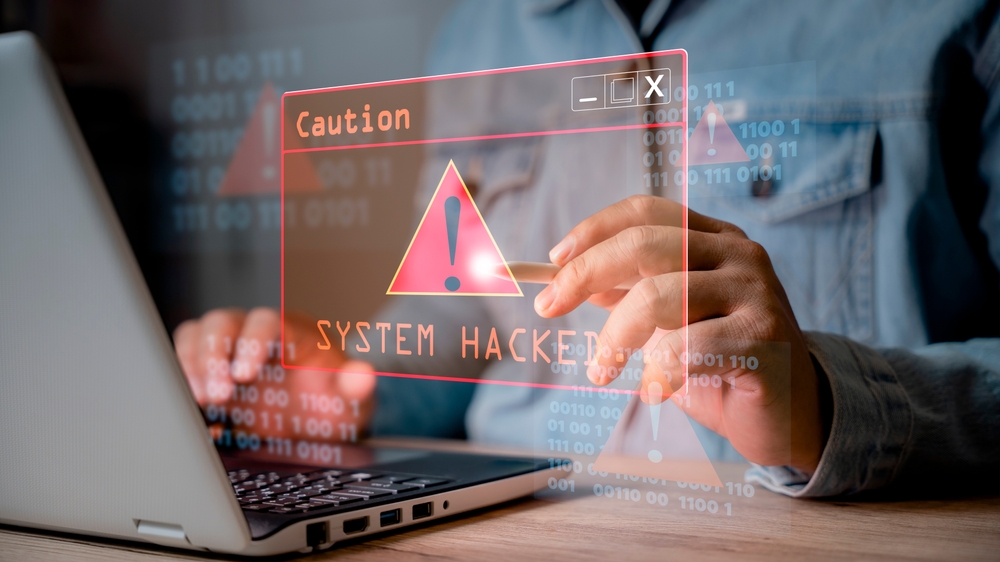In 2023, 75% of data breaches involved phishing attacks, underscoring the critical threat these cyber tactics pose to business cybersecurity.
Phishing and spear phishing, while often conflated, differ significantly in their targeting and sophistication. Understanding these differences is crucial for businesses aiming to bolster their defenses.
What Is Phishing: Understanding the Basics
Clone phishing is a cyberattack method where attackers impersonate legitimate entities to deceive individuals into divulging sensitive information, such as login credentials or financial details.
These attacks typically occur through email, but can also happen via text messages, social media, or malicious websites. The primary goal is to trick recipients into clicking on malicious links or downloading harmful attachments.
Common clone phishing tactics include creating fake websites that closely resemble legitimate ones, sending emails that appear to come from trusted sources, and using urgent language to prompt immediate action.
For instance, an email might claim that a user’s account has been compromised and direct them to a fraudulent site to “reset” their password. These tactics exploit human psychology, making them highly effective.

Large-scale clone phishing attacks have significantly impacted businesses globally. Notable examples include the 2016 attack on the Democratic National Committee, which exposed sensitive emails, and the 2017 WannaCry ransomware attack, which spread through phishing emails and affected organizations worldwide. These incidents highlight the widespread and damaging potential of phishing.
Be Structured has extensive experience in identifying and mitigating phishing threats for clients. By implementing advanced DNS-based email protection systems, conducting regular security awareness training, and employing multi-factor authentication, Be Structured helps businesses reduce their vulnerability to phishing attacks.
This proactive approach ensures that clients are better prepared to recognize and respond to phishing attempts, safeguarding their critical data and systems.
What Is Spear Phishing: Targeted and Sophisticated
Spear phishing represents a more targeted and sophisticated form of phishing. Unlike generic phishing attacks, which cast a wide net, spear phishing zeroes in on specific individuals or organizations.
Attackers often conduct extensive research to craft personalized messages that appear highly credible, increasing the likelihood of success. These messages might reference specific projects, colleagues, or other insider information to deceive the recipient.
High-profile spear phishing incidents have demonstrated the severe risks associated with these attacks. For example, in 2016, cybercriminals used spear phishing to infiltrate the email accounts of John Podesta, Hillary Clinton’s campaign chairman, leading to a significant data breach.
Another notable case involved the CEO of a major European company, who was tricked into transferring $243,000 to a fraudulent account due to a convincing spear phishing email.
Be Structured helps businesses defend against spear phishing attacks by employing advanced endpoint detection systems that analyze email content for signs of spear phishing, such as unusual language patterns or suspicious attachments.
Additionally, Be Structured provides tailored training programs to educate employees on recognizing and reporting spear phishing attempts. By combining technology with human vigilance, Be Structured ensures a robust defense against these highly targeted threats.
Comparing Phishing vs Spear Phishing
Phishing and spear phishing differ significantly in targeting, methodology, and impact. Phishing attacks are broad and indiscriminate, aiming to deceive as many people as possible. They often use generic messages and fake websites to lure victims. In contrast, spear phishing is highly targeted, focusing on specific individuals or organizations. Attackers customize their messages based on detailed research, making them appear more legitimate and harder to detect.
The methodologies also vary.
Phishing typically involves mass emails sent to thousands of recipients, hoping that a small percentage will fall for the scam. These emails often contain urgent language and generic threats.
Spear phishing, however, involves personalized emails referencing specific details about the target, such as their job role, recent activities, or colleagues. This level of customization increases the likelihood of the recipient taking the bait.

The impact of these attacks can also differ.
While phishing can lead to widespread but often less severe consequences, spear phishing can result in significant financial losses, data breaches, and reputational damage.
For example, a successful spear phishing attack on a high-level executive can compromise sensitive company information, leading to severe business repercussions.
Be Structured addresses these differences with tailored solutions such as broad-spectrum defenses and advanced threat detection systems, and provides specialized training to high-risk individuals within an organization.
This dual approach ensures comprehensive protection against both types of attacks, safeguarding businesses from a wide range of cyber threats.
Protecting Your Business: Effective Strategies
Businesses must adopt a multi-layered approach to defend against phishing and spear phishing. Employee training is crucial. Regular workshops and simulated phishing exercises can help employees recognize and report suspicious emails.
Since our inception, Be Structured has offered customized training programs that educate staff on identifying phishing attempts and understanding the importance of cybersecurity hygiene.
Advanced security technologies also play a vital role. Implementing email filtering systems can block many spear phishing emails before they reach employees’ inboxes.
Multi-factor authentication (MFA) adds an extra layer of security, making it harder for attackers to gain access even if they obtain login credentials. Be Structured integrates these technologies into the client’s IT infrastructure, ensuring robust phishing protection against dangerous threats.
Real-world examples highlight the effectiveness of these strategies. In one case, Be Structured provided IT services for financial industry clients that faced frequent phishing attempts. These firms saw a significant reduction in successful phishing attacks by deploying advanced email filters and conducting regular employee training.
Another client, that required healthcare IT support, implemented MFA and experienced enhanced security, preventing unauthorized access to sensitive patient data.
Why Hire Outsourced IT Support Services vs an In-House IT Staff
Hiring an experienced IT support company offers significant advantages over a DIY approach. A dedicated outsourced IT support team provides comprehensive protection by implementing industry best practices and leveraging advanced security technologies. They possess the expertise to configure and maintain robust defenses, ensuring that all potential vulnerabilities are addressed.
Continuous monitoring is another critical benefit. Professional managed IT services teams offer 24/7 monitoring of your systems, identifying and mitigating threats in real-time.
This proactive approach minimizes the risk of data breaches and promptly addresses any suspicious activity. In contrast, a DIY approach often lacks the resources and expertise to maintain such vigilant oversight.

Quick response to threats is essential for minimizing damage. Professional IT teams have established protocols for incident response, allowing them to act swiftly and effectively when a security breach occurs.
Be Structured’s rapid response capabilities ensure that any threats are contained and resolved with minimal disruption to business operations. DIY efforts, on the other hand, may struggle with delayed responses and inadequate solutions.
Additionally, professional IT support provides ongoing education and training for employees, keeping them informed about the latest threats and best practices. This continuous learning environment fosters a culture of cybersecurity awareness, further strengthening the organization’s defenses. By hiring a dedicated IT team, businesses can ensure robust cybersecurity, allowing them to focus on their core operations without the constant worry of cyber threats.
Cybersecurity Service Providers Focues Only on Your Protection
Understanding the differences between phishing and spear phishing is crucial for effective email security. Phishing casts a wide net, while spear phishing targets specific individuals with tailored messages. Both pose significant risks, but their methodologies and impacts vary.
Businesses must adopt comprehensive strategies, including employee training and advanced security technologies, to defend against these threats.
Investing in a top IT support company like Be Structured is essential for maintaining a secure business environment. A dedicated IT network support team ensures robust protection by providing continuous monitoring and quick responses.
Contact Be Structured and schedule a free consultation today!


